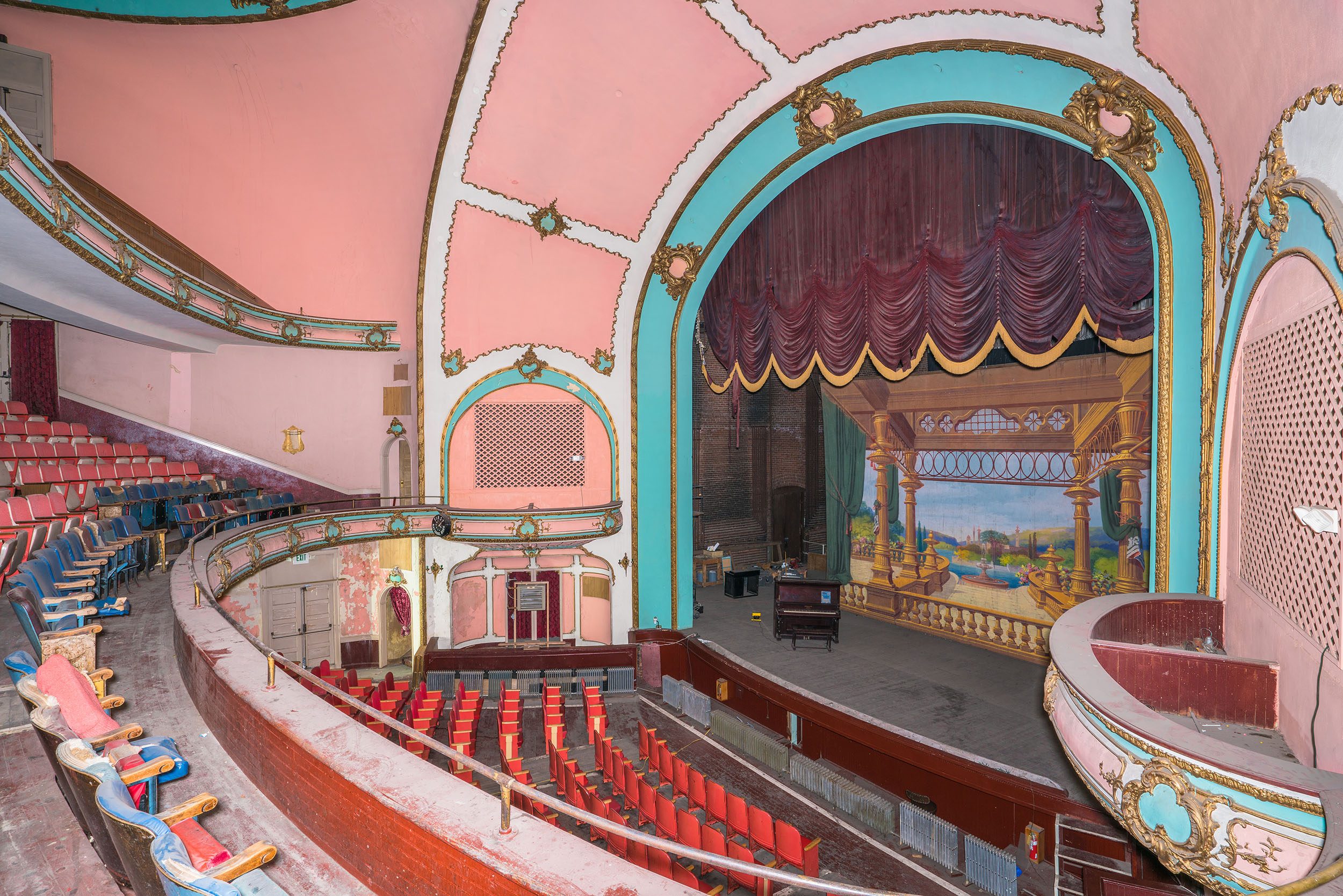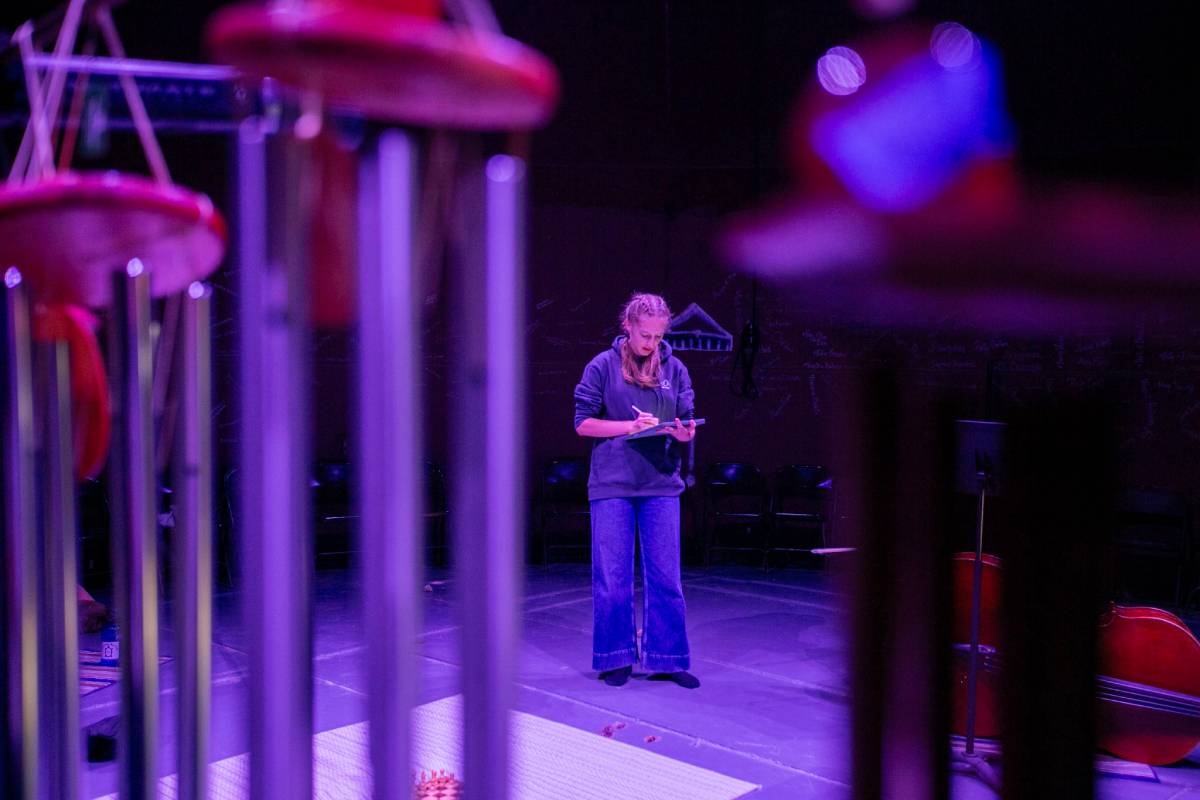
Trump administration cuts to National Endowment for the Arts funding have impacted major institutions, including the Kennedy Center for Performing Arts and the Smithsonian Institution — as well as the NEA’s sister agency, the National Endowment for the Humanities.
But smaller organizations in rural communities have also been impacted, shaking local economies and opportunities for up-and-coming talent.
The Tank Center for the Sonic Arts in Rangely, Colo., is one of these organizations.

A ‘boondoggle’ becomes a beloved hangout
A corrugated steel water tank sits atop a hill in the northwest corner of Colorado, near the Utah border. The seven-story tank used to hold water for steam engines. When diesel replaced steam, the tank was decommissioned.
Then, in the 1960s, the people of Rangely purchased it to store water for fire suppression. When they brought it to town from somewhere near Fruita, they reassembled it atop a loose shale hill. But there was a problem.
“The insurance guy says, ‘Oh no, you can't fill that with water. The hill's too soft. You’ll bring the hill down,’” said James Paul, executive director of The Tank. “So it was a fiasco, a boondoggle, and nobody ever filled it with water.”
So, for years, it sat empty. But it didn’t go unused.
“In ‘76, a traveling band of artists sponsored by the Colorado Arts Council found it via one of their sound guys — and for the first time went in there with instruments,” Paul said. “And for decades, because of the extraordinary resonance in there, they brought their friends.”
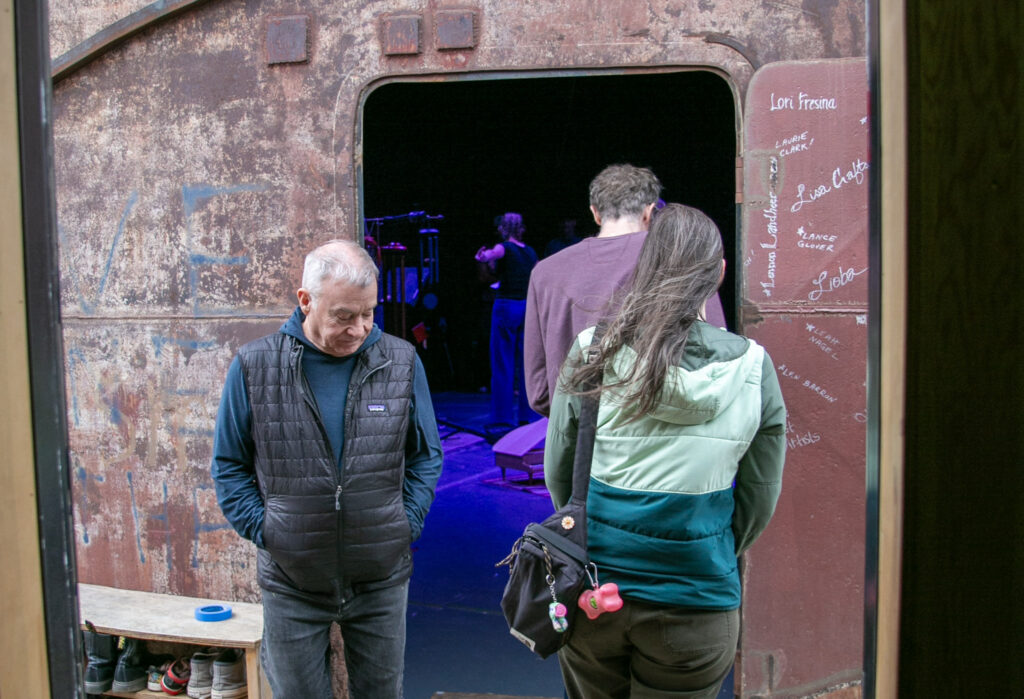
People cut the lock. They crawled in through a porthole. They even scaled the treacherous walls to get inside.
It became well-known as an underground performance and recording space.
The Tank supports artists, and a small community of a couple thousand residents
In 2016, after decades of unsanctioned shenanigans, folks brought the tank up to code and turned it into an arts nonprofit: The Tank Center for the Sonic Arts.
This year, The Tank was granted $15,000 from the National Endowment for the Arts to support a residency program in conjunction with the University of Colorado Boulder.
Then, that funding was rescinded by the Trump administration.
“What are we going to do? I don't know,” said Ben Gondrez, another one of The Tank’s board members. “When you look at something like The Tank and the funding for The Tank, you can think about the art that gets created, but then there's also all the other ancillary benefits that come from something like The Tank. Especially in a community such as Rangely, where the oil wells are drying up and, ostensibly, this town could cease to exist.”
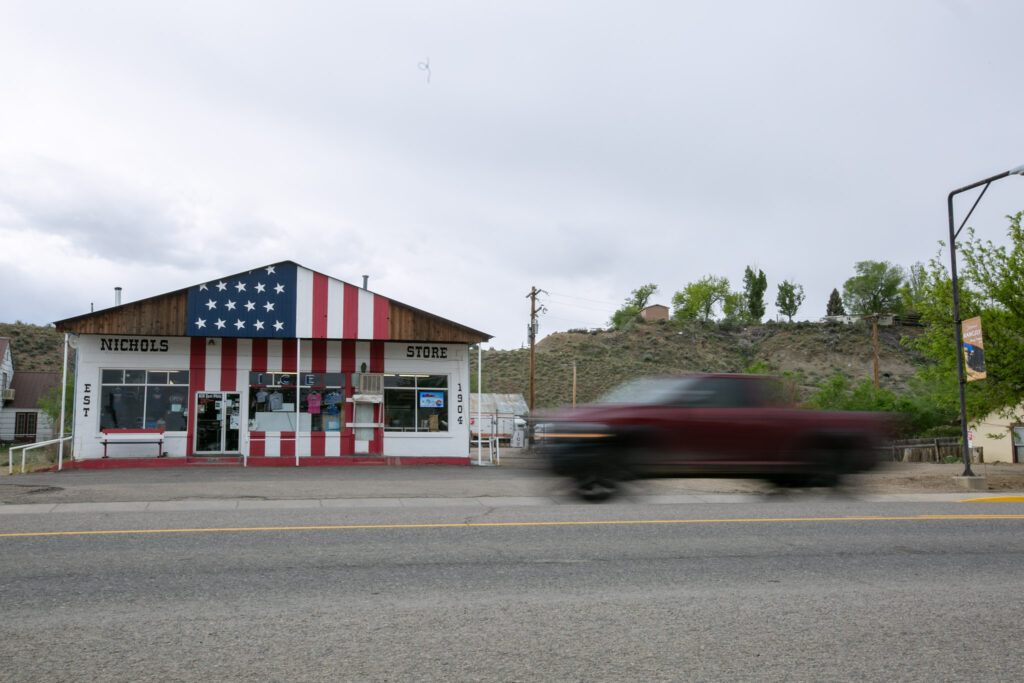
Ondine Geary is on the CU Boulder side of The Tank’s residency program.
“The reduction of federal funding for the arts has been underway for decades,” Geary said. “And it feels like a nail in a coffin. It feels really dire, I think, to have these last little gasps of resources taken away in such a callous manner.”
Boulder undergrad Holly McMahon was selected for The Tank’s spring residency — before federal funding was cut.
“I’m 20. I'm just getting my footing as an artist in this country,” McMahon said. “And then to have things happen that suggest that what I'm doing isn't important to people, then it's like, I don't know, it almost makes me want to leave.”
But she said she’s already seen the impact her work has had on people.
“I'm never going to stop composing as a result.”
Geary said The Tank raised enough money to cover the shortfall for McMahon’s program this spring — but future funding for residents is uncertain.
‘I don't feel silenced because I have art.’
For her residency, McMahon composed a piece featuring a variety of instruments.
“I'm calling it ‘Spaces,’” McMahon said. “Because it's like every different movement, its own little microenvironment of sound.”
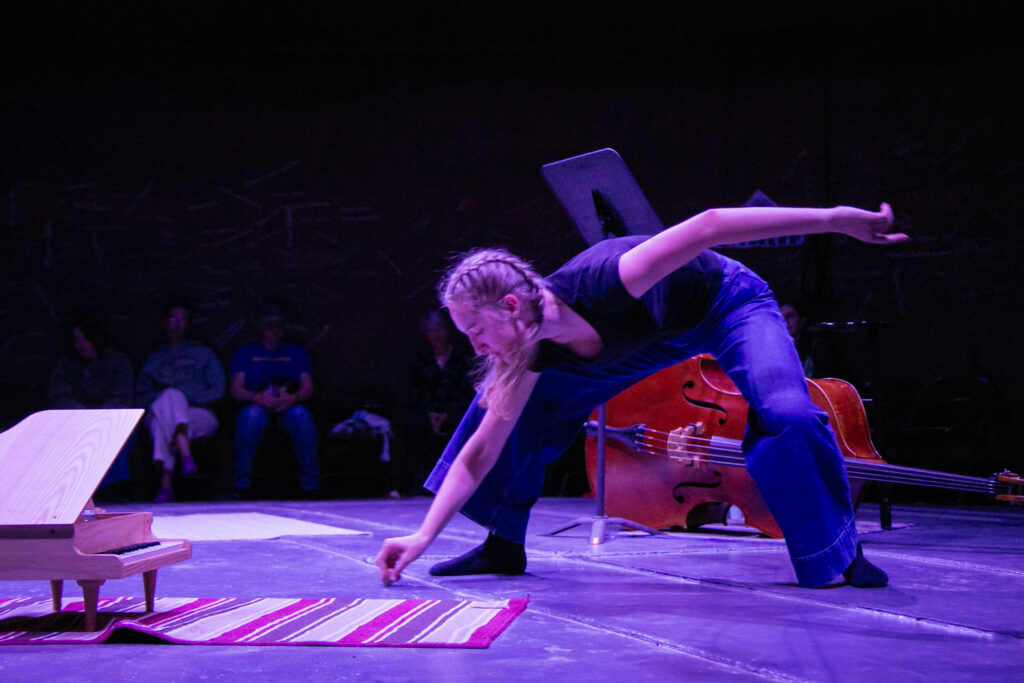
Holly McMahon traces a rock along the floor of The Tank, creating an echo, during the capstone performance for her residency program at The Tank. 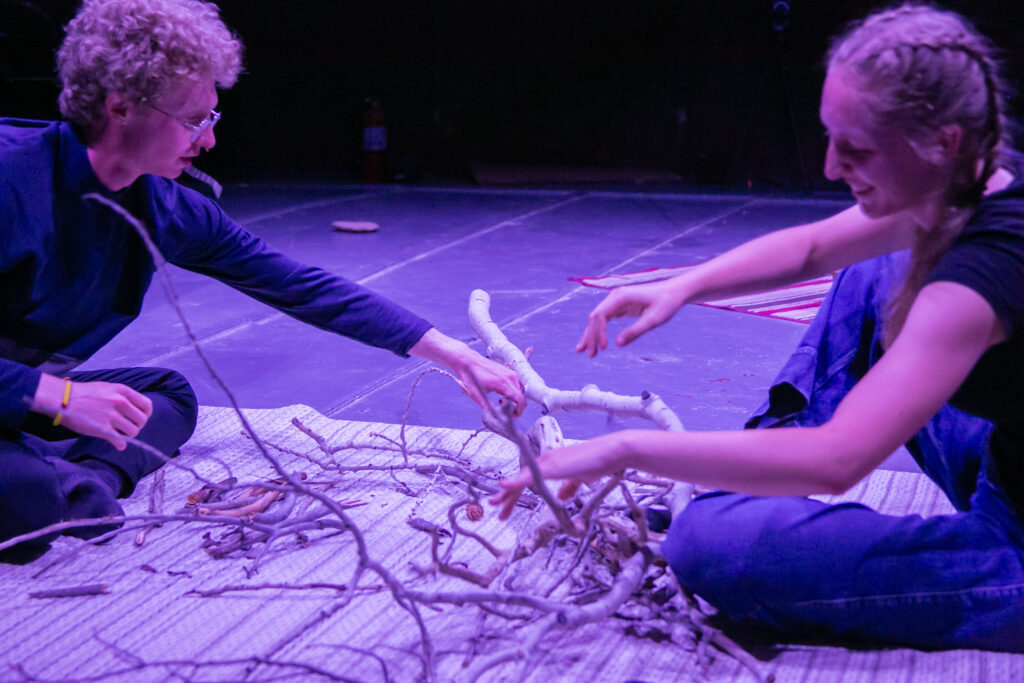
Holly McMahon and Asher Dobrin break sticks in the same experimental music capstone performance.
Asher Dobrin plays the double bass in McMahon’s composition.
He said he’s also worried about the efforts to defund the arts. He said that there’s a myth that “kids only go into the arts if they're from extremely wealthy families because they are safe enough that if they fail and have no income, they'll be able to be cushioned.”
But that frustrates Dobrin: “For me, being able to be a musician was actually the only reason I was able to go to college.”
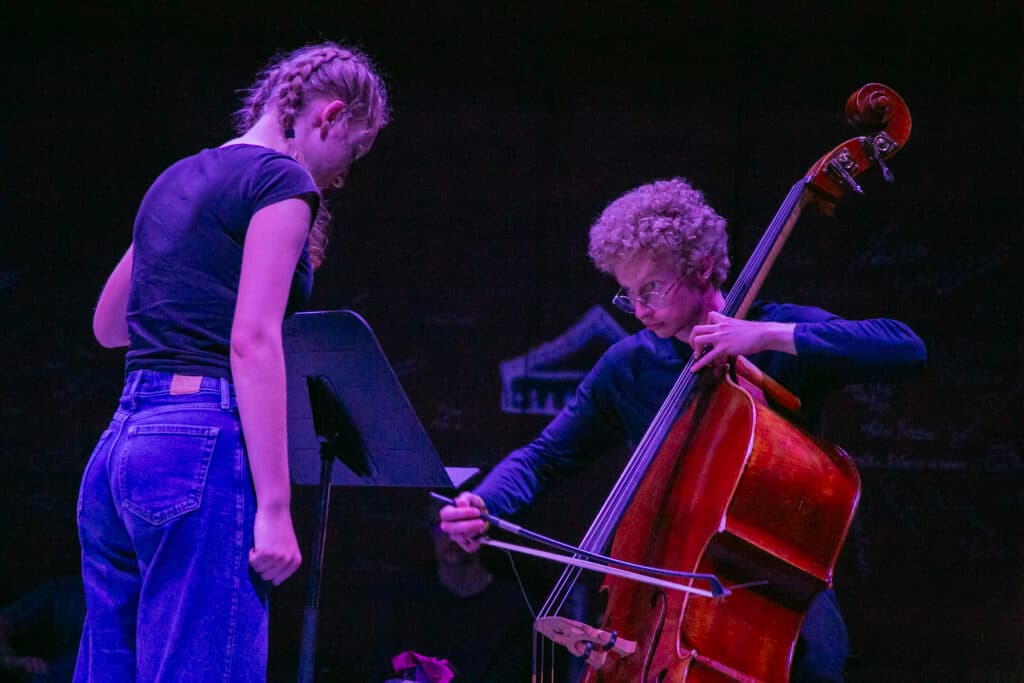
“I would consider myself very privileged to be able to study music, Dobrin said. “But without funding, that opportunity wouldn't have been there.”
He said people want and need music and the arts.
“It's not something that we can really do without,” he said. “But we also live in a world where you have to pay the bills, and that's not always a way to do it.”
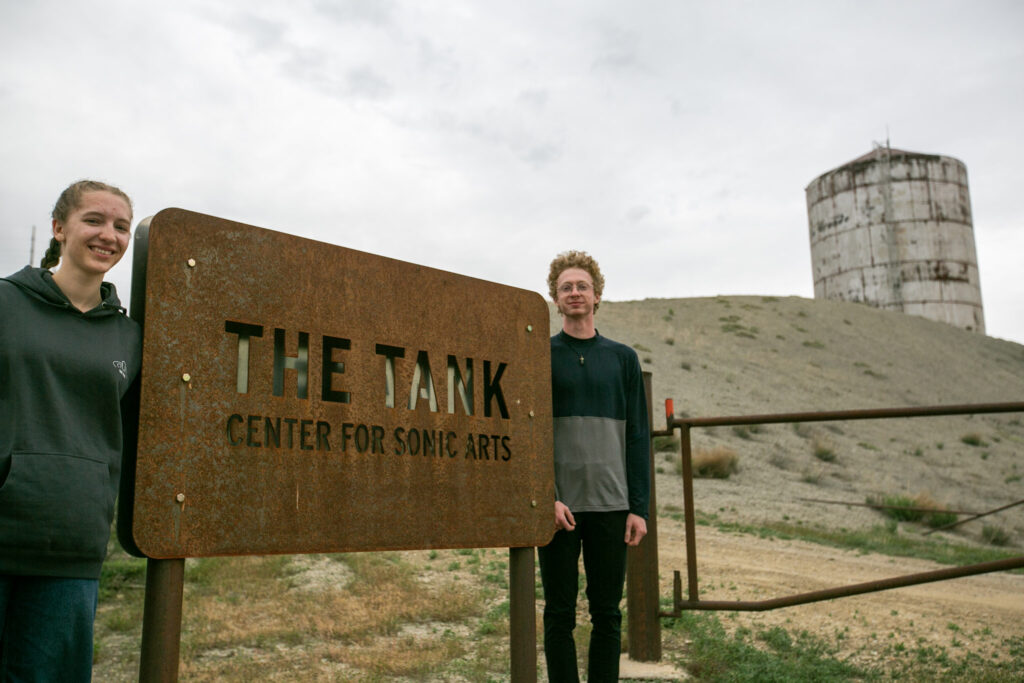
McMahon and Dobrin said their residency at The Tank gave them a handful of important opportunities that will serve them as they pursue graduate school and future work. The residency includes a teaching component, where residents work with local junior and senior high school students, and a performance component, where they perform their work in The Tank for the community.
McMahon said instead of music composition, she almost studied engineering.
“I went to my dad and I said, ‘But dad, what if the economy crashes and people stop caring about the arts, then what am I going to do?’ And he said, ‘Well, then artists are going to be even more important than ever.’ And I think that still feels very true to me.”
She said she also feels privileged to be an artist in this historically significant moment.
“It feels like it has extra weight,” she said. “I don't feel silenced because I have art, and if I didn't have art, I might.”
‘Hopefully, everyone knows what it's like to get lost in a piece of music.’
“Something happens, you just lose yourself. You're alive in a way and in a moment that you can’t get to other ways,” said Steve Lewis, a member of The Tank’s board. But he said we live in a society where it's hard to make your living doing that.
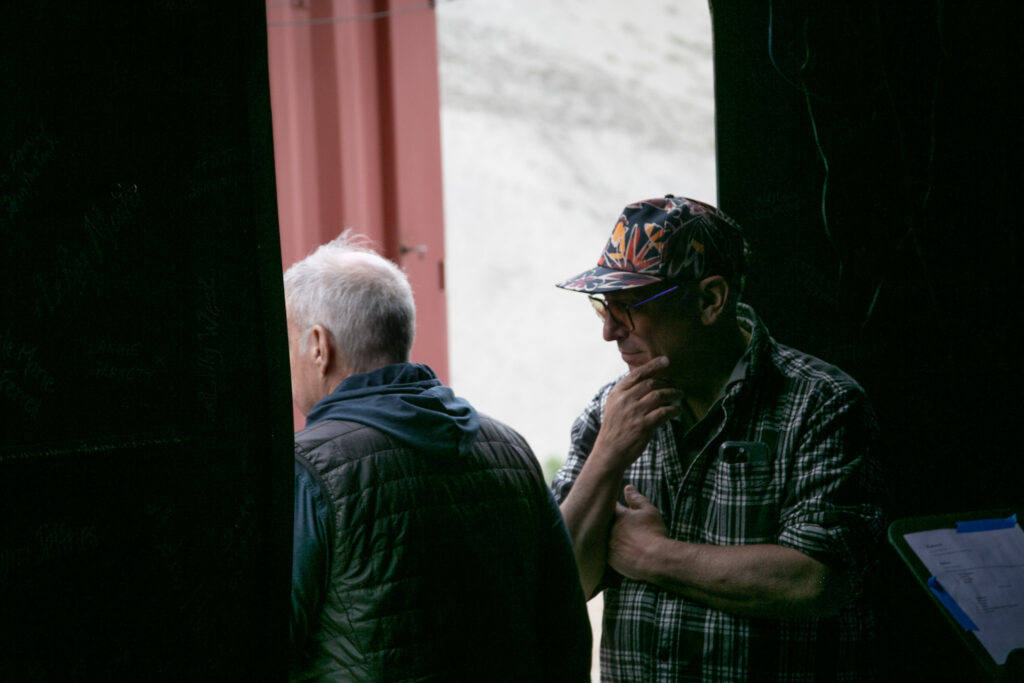
“And so the society puts money aside for the people who create those arts because what they create really does enrich the lives of others. And to say, ‘Well, we're not that kind of society anymore that’s living a full life, that's having a transcendent experience,’ that's essentially what defunding the arts says — ‘That’s not important.’”
The Tank is one of 22 Colorado organizations that lost NEA funding this spring. Across the United States, over 150 organizations were hit. Trump’s 2026 budget proposal also seeks to eliminate the National Endowment for the Humanities and the Institute of Museum and Library Services.
“Defunding the arts is not going to make a scratch on what your underlying economic concerns might really be,” Lewis said. “People come to The Tank for the big concerts, they stay in the few hotels and motels in the area, they eat in the few restaurants in the area, they shop in the few places you can buy food in the area. And it is just a straightforward economic benefit.”
“Take away funding for the arts,” he continued, “you take that away too. It really is cutting off your nose, spite your face kind of thing.”



